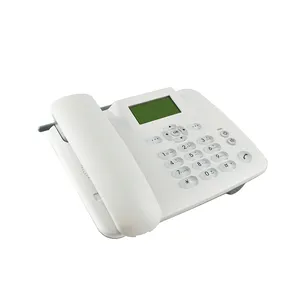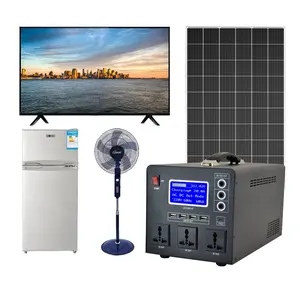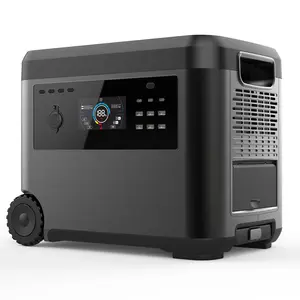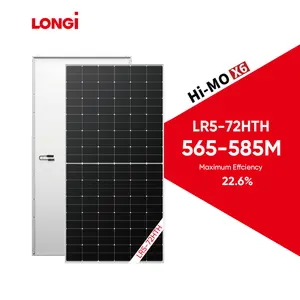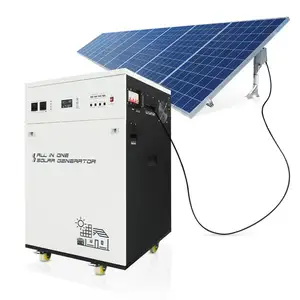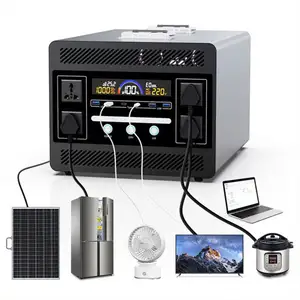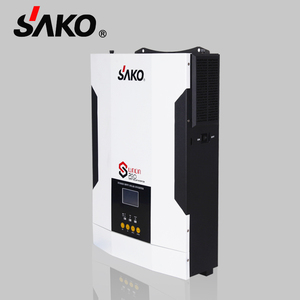Popular in your industry


















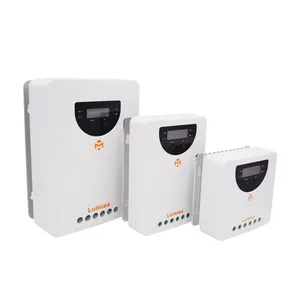






































Top categories
About charge controller solar 220v
A charge controller solar 220v is a pivotal device in solar power systems, adept at managing the energy flow between solar panels and batteries. Alibaba.com offers a comprehensive selection of these controllers, each engineered to cater to the specific requirements of diverse solar power setups.
Types of Charge Controller Solar 220v
Exploring the types of charge controller solar 220v, we encounter a variety of models each with distinct characteristics. For instance, the PowMr High frequency 3200W integrates an 80A MPPT Charge Controller, making it suitable for more demanding systems that require high efficiency and power handling. On the other end, the WHC2460CC WHC SOLAR provides a simpler setup with a 60a PWM Solar Controller, ideal for smaller or medium-sized systems. The Sunpal range extends the versatility further, offering controllers with varying amperage to accommodate different scales of solar operations. These types not only cater to different power capacities but also feature diverse operational modes, user interfaces, and connectivity options, allowing for a tailored solar management solution.
Structure of Solar Charge Controllers
The intricate structure of a charge controller solar 220v is designed for efficiency and longevity. The electronic circuitry, which dictates the flow of current, is the nucleus of the controller. It is intricately connected to a series of inputs and outputs that manage the energy transfer. Advanced models feature sophisticated communication ports for system monitoring and firmware updates. The structural integrity of the controller is paramount, often reinforced with sturdy casings and secure mounting options to withstand the rigors of both indoor and outdoor environments.
Materials in Charge Controllers
The materials selected for constructing a charge controller solar 220v are chosen for their resilience and functional properties. Metals with high thermal conductivity are used for components that require rapid heat dissipation. The plastics employed are typically high-grade, industrial-quality materials that resist wear and tear from environmental exposure. These materials are not only chosen for their physical properties but also for their ability to ensure the controller's reliability and safety over its operational lifespan.
Business Usages and Applications
The charge controller solar 220v is instrumental across various business sectors. In remote monitoring stations, they ensure consistent power supply, while in the agricultural sector, they are pivotal in powering sustainable farming practices. The renewable energy sector relies on these controllers for efficient energy management in solar farms. Each application showcases the controller's ability to adapt to different energy requirements, providing a reliable power management solution that can lead to significant cost savings and operational efficiency.
Functions of Charge Controller Solar 220v
The charge controller solar 220v is engineered to fulfill multiple functions. It regulates the charge to the batteries, preventing overcharging and undercharging, which are critical for battery health. It also manages the power supply to the loads, ensuring that the energy is delivered in the right amounts. Some controllers are equipped with additional functions like data logging and remote monitoring, which are invaluable for system diagnostics and performance analysis.
Features of Solar Charge Controllers
The features of a charge controller solar 220v are what set it apart in a competitive market. These include user-friendly interfaces for easy monitoring and adjustments, automatic voltage recognition, and various protection measures such as overcharge protection, short-circuit protection, and reverse polarity protection. These features not only ensure the safety of the solar power system but also contribute to the ease of use and maintenance of the controller.
Benefits of Using a Charge Controller Solar 220v
Employing a charge controller solar 220v brings numerous benefits. It ensures the longevity of the battery by preventing the stress of overcharging, thus saving on replacement costs. The precision in charge control maximizes the efficiency of the solar panels, translating to more energy per square foot of solar array. For businesses, this means a better return on investment, and for individual users, it means more sustainable and cost-effective energy use.
How to Use and Maintain Charge Controllers
Using a charge controller solar 220v effectively involves understanding the system's requirements and the controller's features. Post-installation, it's important to regularly check the display for any alerts or irregularities in voltage or current. Maintenance is relatively minimal but crucial; it includes keeping the controller clean from dust and debris, ensuring all connections are tight and secure, and periodically checking the system's settings to ensure they are still aligned with your energy needs.
How to Choose the Right Solar Charge Controller
Choosing the correct charge controller solar 220v is a matter of assessing your system's voltage requirements, the type of battery in use, and the expected energy consumption. It's also important to consider the controller's compatibility with additional system components, such as inverters and additional power sources. For those looking to expand their system in the future, a controller with a higher capacity might be a prudent choice.
Target Audience and Meeting Their Needs
The target audience for charge controller solar 220v spans from individual homeowners seeking energy independence to businesses aiming for sustainable operations. These controllers are designed with a focus on versatility, allowing them to meet the varying needs of this wide audience. Features like scalable amperage, various charging modes, and robust construction make these controllers adaptable to different environments and usage scenarios.
What are the safety precautions when using a charge controller solar 220v?
When using a charge controller solar 220v, it is crucial to follow safety precautions such as ensuring proper insulation of all connections, using the controller within the specified temperature range, and avoiding exposure to moisture. It is also important to adhere to the manufacturer's guidelines for installation and operation.
Can charge controller solar 220v be used for all types of batteries?
While charge controller solar 220v can be used with many types of batteries, it is essential to verify compatibility. Different batteries like lead-acid, lithium-ion, or gel require specific charging profiles, which the controller must be able to provide to ensure safe and efficient charging.
How does a charge controller solar 220v enhance solar system efficiency?
A charge controller solar 220v enhances system efficiency by employing MPPT or PWM charging modes to maximize the energy harvested from the solar panels. It intelligently adjusts the charge rate, reducing losses and ensuring that batteries are charged in the most efficient way possible, thus optimizing the overall performance of the solar power system.
